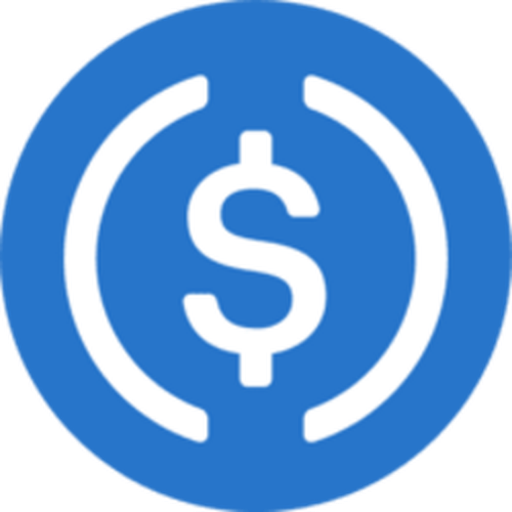USDC vs Beldex – Price, Market Cap & Performance Compared
Which coin performs better – USDC or Beldex?
We compare the current price (0.99971 $ vs 0.09004 $), market cap (74 153 765 385 vs 661 301 400) and all-time high (1.17 vs 0.45079).
Find out which one stands out right now!
USDC is currently trading at 0.99971 $, while Beldex stands at 0.09004 $. These cryptocurrencies differ not only in price but also in market presence.
The market cap of USDC is around 74 153 765 385, and Beldex has about 661 301 400. Their respective all-time highs are 1.17 for USDC and 0.45079 for Beldex.
Daily trading volume and the 24h price change (-0.00009 % vs 3.00561 %) also offer key insights.
Compare all metrics now and see which coin fits your investment strategy best!
USDC
USD Coin (USDC) is a stablecoin that is pegged to the US dollar, offering a consistent value and reducing the volatility often associated with cryptocurrencies. It provides a crucial bridge between traditional financial systems and digital currency markets, facilitating easy and secure transactions. USDC's foundation on blockchain technology ensures transparency and enhances trust among users and institutions.
more informationBeldex
Beldex is a privacy-focused cryptocurrency that aims to provide secure and anonymous transactions for its users. Utilizing a hybrid consensus model, it combines features from both privacy coins and smart contract platforms to enhance user confidentiality and network functionality. With a growing ecosystem that includes decentralized applications and privacy-centric solutions, Beldex is positioning itself as a key player in the realm of private digital finance.
more information

|

|
|
|
|
General Information |
|
|---|---|
|
Title
USDC
|
Title
Beldex
|
|
Symbol
usdc
|
Symbol
bdx
|
|
Whitepaper
-
|
Whitepaper
|
|
Website
|
Website
|
|
Community
-
|
Community
-
|
|
Last Updated
2025-09-24 23:29
|
Last Updated
2025-09-24 23:29
|
Price Data |
|
|---|---|
|
Current Price $
0.99971 $
|
Current Price $
0.09004 $
|
|
High 24h
0.99972 $
|
High 24h
0.09152 $
|
|
Low 24h
0.99960 $
|
Low 24h
0.08705 $
|
|
Price Change 24h
0.00000 $
|
Price Change 24h
0.00263 $
|
|
Price Change % 24h
-0.00009 %
|
Price Change % 24h
3.00561 %
|
Market Data |
|
|---|---|
|
Market Cap
74 153 765 385
|
Market Cap
661 301 400
|
|
Total Volume
10 559 655 699
|
Total Volume
5 590 441
|
|
Market Cap Change 24h
159 815 467
|
Market Cap Change 24h
19 174 026
|
|
Market Cap Change % 24h
0.21598 %
|
Market Cap Change % 24h
2.98602 %
|
|
Return on Investment (ROI)
-
|
Return on Investment (ROI)
-63.98244 %
|
Supply and Availability |
|
|---|---|
|
Circulating Supply
74 175 659 818
|
Circulating Supply
7 345 610 913
|
|
Total Supply
74 172 355 958
|
Total Supply
9 937 270 613
|
|
Max Supply
-
|
Max Supply
-
|
Historical Data |
|
|---|---|
|
All Time High (ATH)
1.17
|
All Time High (ATH)
0.45079
|
|
ATH Change %
-14.75232 %
|
ATH Change %
-80.02973 %
|
|
ATH Date
2019-05-08 00:40
|
ATH Date
2018-12-17 00:00
|
|
All Time Low (ATL)
0.87765
|
All Time Low (ATL)
0.00028
|
|
ATL Change %
13.90744 %
|
ATL Change %
32 614 %
|
|
ATL Date
2023-03-11 08:02
|
ATL Date
2019-11-01 11:05
|
USDC
Understanding USDC: A Stablecoin in the Volatile Crypto World
USDC, or USD Coin, is a prominent stablecoin in the cryptocurrency market. Issued by Circle and backed by fully reserved assets, USDC is designed to maintain a 1:1 value ratio with the US Dollar, making it a reliable digital dollar. The stablecoin ecosystem plays a crucial role in the broader cryptocurrency industry by providing a less volatile alternative to traditional cryptocurrencies like Bitcoin and Ethereum.
The Evolution of USDC
Launched in 2018, USDC was developed as part of a collaboration between Circle and Coinbase, two major forces in the cryptocurrency space. Since its inception, USDC has seen significant growth and adoption, becoming one of the leading stablecoins alongside Tether (USDT) and Binance USD (BUSD). While its all-time high reached $1.17 in May 2019, this was more of an anomalous spike that reinforced the need for rigorous controls to maintain stability around its intended $1 peg.
Pros of Using USDC
One of the primary advantages of USDC is its transparency and regulatory compliance. Circle, the company behind USDC, undergoes regular audits and publishes monthly attestations of its reserves, ensuring users that each USDC token is truly backed by a dollar or dollar-equivalent asset held in reserve. This transparency fosters trust and helps mitigate the volatility that plagues much of the crypto market.
Furthermore, USDC serves as a bridge between traditional finance and the blockchain world. It's used widely in Defi applications, allowing decentralized lending, borrowing, and trading while maintaining value stability. Additionally, USDC's integration into various wallets and exchanges worldwide adds to its utility and liquidity.
Cons of USDC
Despite its advantages, USDC is not without its drawbacks. One of the critical concerns involves regulatory risks, as stricter regulations on stablecoins could impact its future operations. Also, as a centralized stablecoin, USDC is subject to censorship concerns, where accounts can be frozen, diverging from the decentralized ethos that underlies most cryptocurrencies.
Another drawback is that, unlike decentralized alternatives, USDC requires a level of trust in the issuer, Circle. Any potential mismanagement or economic instability affecting Circle could, in theory, impact its ability to maintain the 1:1 peg, a risk inherent to any centralized stablecoin.
Past Performance and Market Impact
USDC has generally maintained its peg effectively, with minor fluctuations typically remaining within a tight range around $1. Its stability has been pivotal during periods of crypto market volatility, where it serves as a safe haven for investors looking to escape market downturns without exiting the crypto ecosystem.
In terms of market cap, USDC has experienced exponential growth, driven by increased adoption in the decentralized finance (Defi) space and demand for stable trading pairs. Despite being eclipsed by Tether (USDT) in terms of market share, USDC's reputation for transparency gives it a competitive edge.
Future Outlook for USDC
Looking ahead, USDC's future appears promising but laden with challenges. The growing scrutiny from regulators worldwide could result in regulatory changes impacting its operations. However, Circle's proactive approach to compliance and regulation may shield USDC from adverse outcomes.
The stablecoin's role in facilitating seamless transactions and enabling innovative financial products in the Defi space will likely continue to drive its utility and adoption. Moreover, as traditional financial institutions begin to explore blockchain technology, USDC could play a critical role in bridging the two worlds.
In summary, USDC's stability, transparency, and integration with both traditional and decentralized finance systems position it as a key player in the ongoing evolution of digital finance. However, navigating regulatory landscapes and maintaining trust will be crucial for its sustained success.
Beldex
The Emergence of Beldex: A Privacy-Centric Cryptocurrency
Beldex, with its ticker symbol BDX, has been gaining attention in the crypto community for its unique approach to privacy and security. Since its inception, Beldex has evolved as an innovative project focused on delivering anonymous transactions, thereby appealing to privacy activists and enthusiasts in the crypto space.
A Glimpse into Beldex's Past Performance
Beldex's journey in the cryptocurrency market has been both tumultuous and promising. Debuting with notable fanfare, BDX reached its all-time high (ATH) of $0.450785 in December 2018. However, the volatility of the market coupled with the mechanistic cycles of bull and bear trends saw its value retract significantly by over 83% from its ATH.
November 2019 marked the nadir for Beldex, hitting its all-time low (ATL) at a meager $0.00027519. Despite these setbacks, Beldex demonstrated resilience, rallying from its ATL with an astonishing percentage increase of over 27,654% to date, reflecting its potential for recovery and growth.
Privacy and Usability: Key Advantages of Beldex
Beldex stands out with its robust privacy features. It leverages an advanced privacy protocol that ensures transaction anonymity, protecting users from unwanted scrutiny. This heightened focus on privacy aligns Beldex with the increasing global demand for secure and confidential digital transactions.
Furthermore, the architecture of Beldex supports scalability, intended to facilitate seamless integration into decentralized applications (DApps). Its emphasis on user-friendly interfaces and practical utility provides BDX an edge over some privacy coins that have not prioritized usability.
Pitfalls and Challenges Facing Beldex
Despite its strengths, Beldex is not without challenges. One significant downturn is its negative ROI of -69.41%, highlighting that early investors have yet to recover their initial input fully. The market volatility intrinsic to cryptocurrencies adds to the unpredictability of BDX's price movements.
Moreover, regulatory pressures surrounding privacy-focused coins pose a potential threat to Beldex's development. Governments advocating for stricter regulations on cryptocurrency transactions might inhibit Beldex's widespread adoption and growth, especially in jurisdictions wary of anonymous transactions.
Future Outlook: Can Beldex Sustain Momentum?
Looking towards the future, Beldex holds promise if it successfully navigates the delicate balance between regulatory compliance and maintaining user privacy. The continued global inclination towards decentralization and privacy-enhancing technologies could serve as a substantial driver for BDX's growth.
Innovative upgrades, partnerships, and community engagement are likely to shape Beldex's trajectory. Strengthening its network and improving transaction speed can potentially position Beldex as a leading privacy coin, particularly as digital privacy remains a primary concern across various sectors.
Conclusion: A Coin at the Crossroads
In essence, Beldex is a cryptocurrency with a distinguished focus on privacy. Its historical performance illustrates both the risks and rewards inherent in the crypto market. As Beldex continues to evolve, its future success will hinge on its ability to adapt to changing market conditions and regulatory landscapes. Investors and users alike will watch keenly to see if BDX can overcome its challenges and realize its vision of facilitating secure and anonymous digital transactions on a broader scale.

